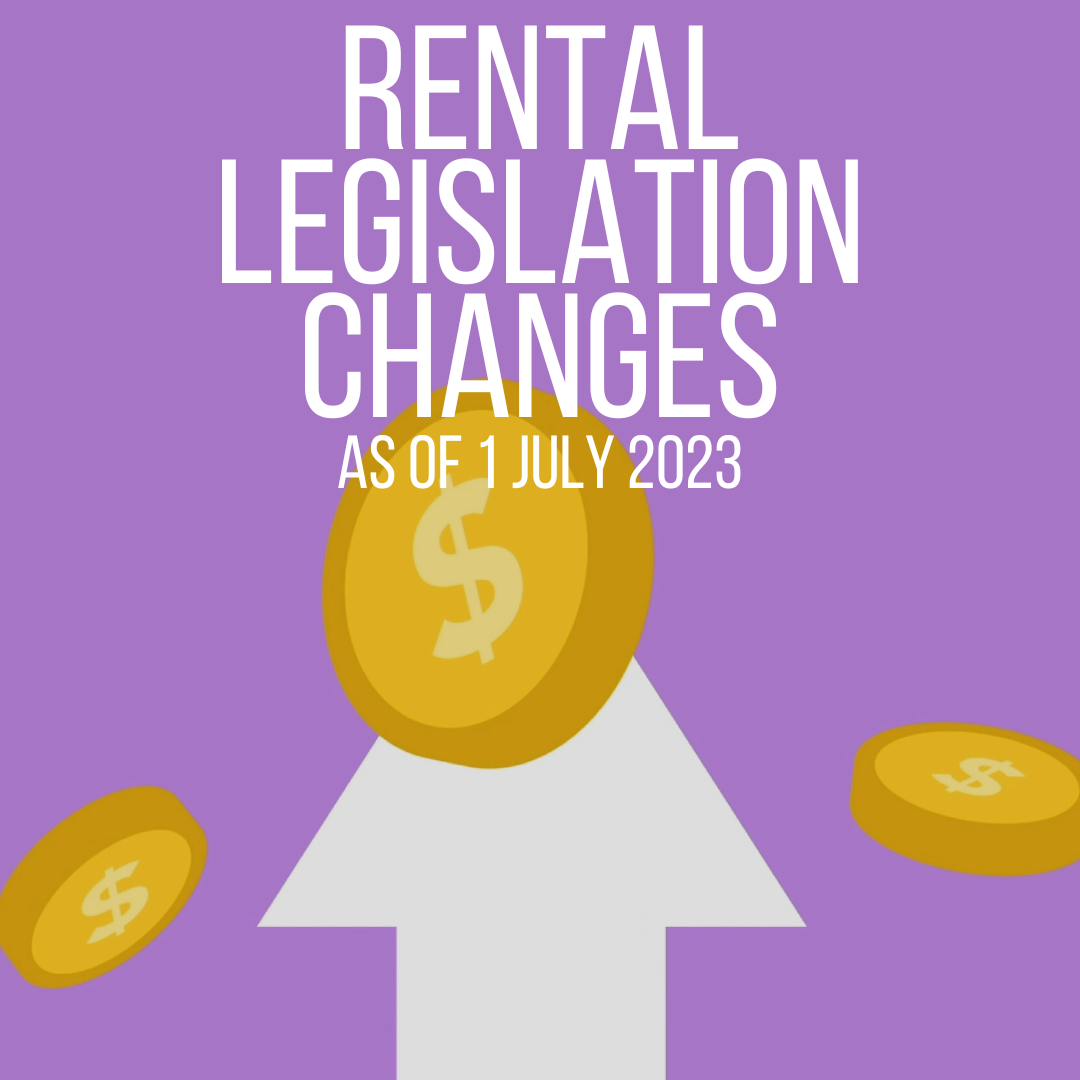Review Of Temporary Rental Contract Legislation: Potential Changes

Table of Contents
Current State of Temporary Rental Contract Legislation
Existing laws governing temporary rentals vary considerably depending on the jurisdiction, but several common themes emerge. Understanding these existing frameworks is crucial before examining proposed changes. Key aspects of current legislation include:
- Minimum Lease Durations: Many jurisdictions stipulate minimum lease terms for short-term rentals, often differentiating between residential and commercial properties. These minimum durations can significantly affect the flexibility of temporary rental agreements.
- Tenant Rights and Responsibilities: Tenants in temporary rental agreements generally retain core rights regarding habitability, privacy, and security of tenure, albeit often with some variations compared to long-term leases. Their responsibilities, such as paying rent on time and maintaining the property, remain largely consistent.
- Landlord Obligations: Landlords are responsible for ensuring the property's habitability and adhering to safety standards, regardless of the lease term. This includes necessary repairs and maintenance.
- Dispute Resolution Mechanisms: Mechanisms for resolving disputes between landlords and tenants often exist, ranging from mediation services to formal legal proceedings. The specifics of these processes will vary by location.
- Regional/Jurisdictional Variations: The specifics of rental agreements and tenant laws vary significantly across regions and jurisdictions. What's legally permissible in one city or state might be prohibited in another.
Understanding these aspects of current short-term rental agreements and lease terms is crucial for both landlords and tenants seeking to navigate the complexities of tenant laws and landlord-tenant relationships.
Proposed Changes and Amendments to Temporary Rental Contract Legislation
Several jurisdictions are currently considering or have implemented changes to their temporary rental contract legislation. These proposed amendments aim to address various concerns, including tenant protection, rental cost control, and market stability. Key areas of reform include:
- Increased Tenant Protections: Many proposed changes aim to strengthen tenant protections against unfair eviction practices and unreasonable rent increases, particularly for those in short-term rental agreements.
- Regulations on Short-Term Rental Platforms: Some jurisdictions are actively regulating platforms like Airbnb and Vrbo, aiming to ensure compliance with existing landlord-tenant laws and to address issues such as tax collection and neighborhood impacts.
- Rent Control Measures: Certain jurisdictions are exploring rent control measures for temporary rentals, aiming to curb rapid rent increases and improve affordability.
- Clarification of Lease Agreement Terms: Proposed amendments often focus on clarifying ambiguous terms in rental agreements to protect both tenants and landlords.
- Streamlined Eviction Procedures: While some proposed changes focus on increased tenant protections, others aim to streamline eviction procedures for landlords dealing with problematic tenants.
These proposed amendments, while often well-intentioned, can significantly impact rental costs and lease agreement terms. Understanding these potential changes is vital for landlords and tenants alike. It’s important to consult official government sources for details on proposed legislation reform and rental law changes in your specific location.
Impact of Potential Changes on the Rental Market
The proposed legislation changes are projected to have significant ramifications for the rental market. A market analysis suggests several key impacts:
- Availability of Temporary Rentals: Depending on the specific changes, the availability of temporary rentals could increase or decrease. Stricter regulations might discourage some landlords from offering short-term rentals, reducing supply.
- Rental Prices: Rent control measures and increased tenant protections might lead to stabilized or even slightly reduced rental prices in some areas, while other changes could push prices up.
- Competition Among Landlords: Changes to regulations will likely alter the competitive landscape for landlords, influencing their strategies and pricing models.
- Demand for Temporary Accommodations: The demand for temporary accommodations is expected to remain strong, driven by tourism, business travel, and relocation needs. However, the supply and price fluctuations will directly influence demand patterns.
The overall economic impact on the housing market is complex and will vary widely depending on the location and the specific nature of the legislation.
Specific Examples of Potential Changes and their Implications
For example, a proposed amendment in City X might mandate a minimum 30-day lease for all short-term rentals, eliminating the possibility of truly short stays. This would impact businesses relying on short-term rentals for accommodating tourists or business travelers. Conversely, stricter eviction procedures in City Y could reduce landlord-tenant disputes, but might also make it more difficult for landlords to remove problematic tenants.
Navigating the Changes: Advice for Landlords and Tenants
The evolving legal landscape demands proactive adaptation from both landlords and tenants. Here’s how to navigate these changes:
- Landlords: Stay updated on all legislative changes in your jurisdiction. Update your rental agreements to comply with new regulations, considering using rental agreement templates that comply with the latest laws. Ensure you understand your responsibilities under the revised legislation and seek legal counsel if needed to ensure legal compliance.
- Tenants: Familiarize yourselves with your rights and responsibilities under the new laws. Carefully review your rental agreements and understand your protections. Don't hesitate to seek legal advice if you encounter any issues with your landlord.
Review of Temporary Rental Contract Legislation: Potential Changes – Key Takeaways and Call to Action
This review highlights the dynamic nature of temporary rental contract legislation and the significant implications of proposed changes for both landlords and tenants. Understanding these shifts is crucial for navigating the rental market effectively. Staying informed about legal updates and seeking legal advice when necessary are vital steps in ensuring compliance and protecting your rights. Regularly check your local government websites and relevant legal organizations for updates on temporary rental contract legislation to remain well-informed. Don't wait until a problem arises; proactive engagement with these legal updates is your best defense.

Featured Posts
-
 Lawyer For Justin Baldoni Rebuts Ryan Reynolds Allegations
May 28, 2025
Lawyer For Justin Baldoni Rebuts Ryan Reynolds Allegations
May 28, 2025 -
 Rezhisser Ues Anderson Rabota Nad Novym Filmom Nachalas
May 28, 2025
Rezhisser Ues Anderson Rabota Nad Novym Filmom Nachalas
May 28, 2025 -
 Lagardes Strategy Elevating The Euros Global Influence Via Eur Usd
May 28, 2025
Lagardes Strategy Elevating The Euros Global Influence Via Eur Usd
May 28, 2025 -
 Your Guide To The Best Memorial Day Deals In 2024
May 28, 2025
Your Guide To The Best Memorial Day Deals In 2024
May 28, 2025 -
 Hasselbaink In Ronaldo Ya Emeklilik Cagrisi 2026 Duenya Kupasi Nda Cristiano Ya Ihtiyac Yok Mu
May 28, 2025
Hasselbaink In Ronaldo Ya Emeklilik Cagrisi 2026 Duenya Kupasi Nda Cristiano Ya Ihtiyac Yok Mu
May 28, 2025
